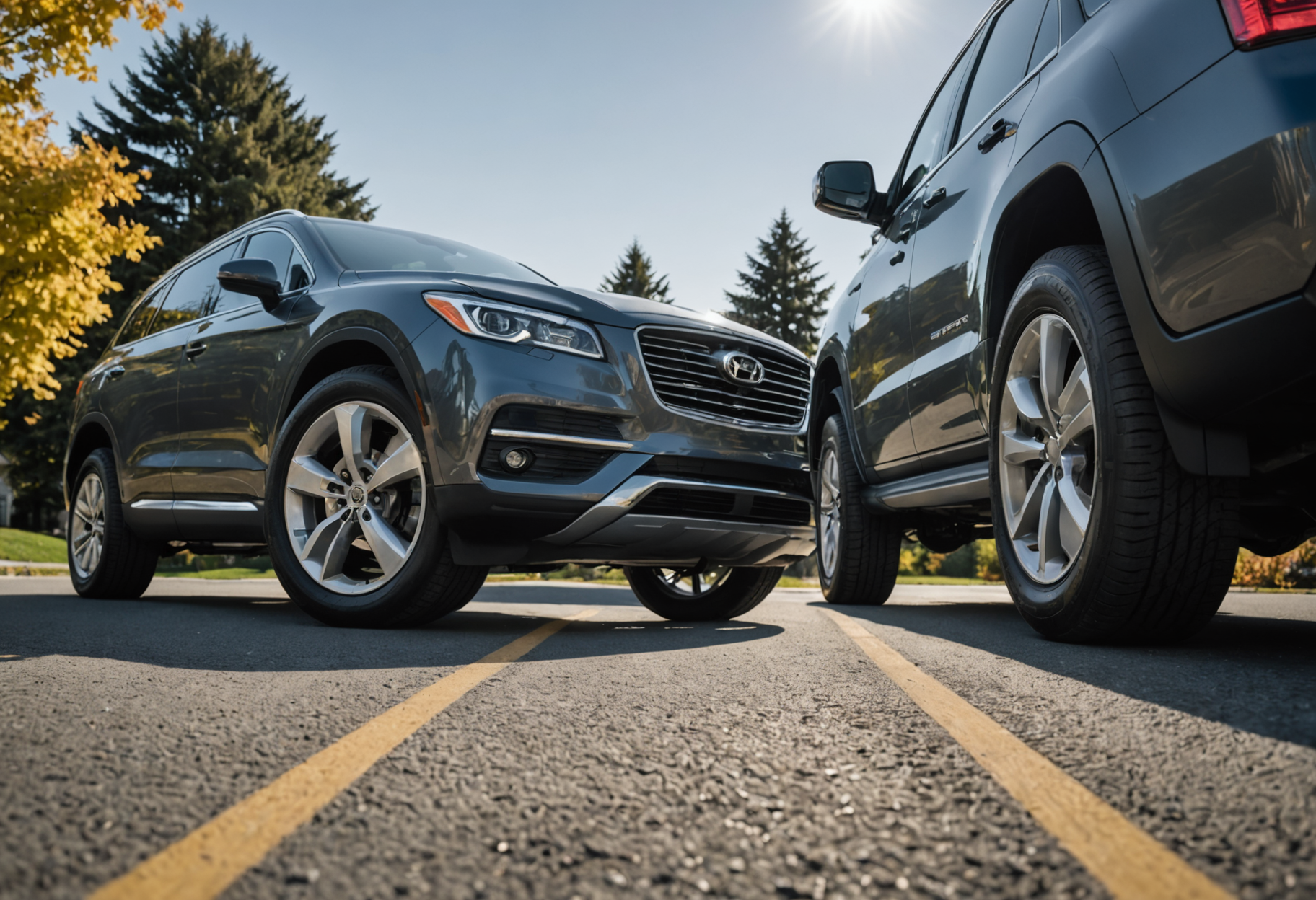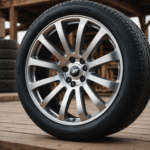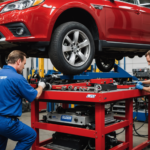The right tires can significantly enhance a vehicle’s performance, safety, and fuel efficiency. However, with numerous options available, choosing between all-season and performance tires can be a daunting task for many vehicle owners. This article provides an in-depth comparison of these two types of tires, helping readers make an informed decision based on their driving needs, climate conditions, and vehicle specifications.
Understanding Tire Types
Tires are categorized based on their design and purpose. Understanding these categories is crucial for selecting the right tires for a vehicle.
All-Season Tires
All-season tires are designed to provide versatility and comfort in a variety of weather conditions. They are a popular choice for daily driving, balancing performance in both wet and dry conditions.
Advantages of All-Season Tires
- Versatility: Suitable for a wide range of conditions including light snow, rain, and dry circumstances.
- Longevity: Typically have a longer tread life compared to performance tires.
- Cost-Efficiency: Often less expensive than performance tires, making them a budget-friendly option.
Disadvantages of All-Season Tires
- Performance Limitations: Not optimized for extreme weather conditions or high-speed driving.
- Compromised Handling: May not provide the same level of cornering grip as performance tires.
Performance Tires
Performance tires, also known as summer tires, are designed to deliver enhanced handling and traction under specific driving conditions, particularly in dry and wet weather.
Advantages of Performance Tires
- Superior Grip: Excellent handling and cornering capabilities, making them ideal for sports cars and spirited driving.
- Enhanced Stopping Power: Provide better braking performance compared to all-season tires.
- Improved Stability: Offer greater stability at high speeds, enhancing driver confidence.
Disadvantages of Performance Tires
- Poor Winter Performance: Not suitable for icy or snowy conditions, as their rubber compounds are designed to remain firm in warm temperatures.
- Higher Cost: Generally more expensive than all-season tires, impacting overall vehicle ownership costs.
- Tread Wear: Tend to wear out faster than all-season tires, particularly if used outside their optimal conditions.
Key Factors to Consider When Choosing Tires
Choosing between all-season and performance tires involves evaluating various factors that relate to personal driving habits and the environmental conditions. Below are essential considerations:
1. Driving Conditions
The primary factor influencing tire selection is the driving environment. Here are some points to consider:
- Weather: If a vehicle frequently encounters rain or mild winter conditions, all-season tires may suffice. However, for regions that experience extreme temperatures or heavy snowfall, performance tires are not advisable.
- Road Types: Drivers on smooth, dry roads may benefit from performance tires. In contrast, those frequently navigating uneven or wet roads may find all-season tires more suitable.
2. Driving Style
Another significant aspect is the driver’s style. Different drivers will have distinct expectations from their tires:
- Daily Commuters: Those who use their vehicles for work or school may prioritize comfort and longevity, making all-season tires a better fit.
- Enthusiasts: Drivers who enjoy spirited driving or participate in motorsports will likely prefer the performance offered by performance tires.
3. Budget
The cost of tires is another important consideration. Here are some budget-related aspects:
- Purchase Price: All-season tires generally have a lower upfront cost compared to performance tires.
- Tread Life: Although performance tires might have a higher initial cost, their shorter lifespan can result in more frequent replacements, thus affecting long-term budget considerations.
4. Vehicle Type
The type of vehicle also impacts tire selection. Here’s how different vehicles fit within the all-season versus performance tire conversation:
- Passenger Cars: Often can benefit from all-season tires due to their generic performance needs.
- Sports Cars and Performance Vehicles: These cars are built for speed and handling, making performance tires the preferable choice.
Comparative Analysis Table
| Feature | All-Season Tires | Performance Tires |
|---|---|---|
| Weather Adaptability | Good | Limited (best in dry/wet conditions) |
| Longevity | High Tread Life | Low to Medium Tread Life |
| Cost | Less Expensive | More Expensive |
| Traction | Moderate | High |
| Comfort | High | Medium |
Common Misconceptions
There are numerous misconceptions surrounding tire types that can lead to poor decision-making. Addressing these can clarify the differences:
Myth 1: All-Season Tires Are Suitable for All Conditions
While all-season tires do offer versatility, they do not perform optimally in extreme weather conditions. Drivers located in areas with harsh winters should consider winter tires for safety during snowy conditions.
Myth 2: Performance Tires Are Only for Sports Cars
While performance tires are essential for sports cars, they can also benefit anyone looking for enhanced handling and grip, particularly in dry conditions.
Myth 3: Tire Quality Is Solely Determined by Price
While higher-priced tires may offer better performance and features, it is crucial to consider the type of driving, vehicle specifications, and prevailing weather when determining tire quality.
Conclusion
The choice between all-season and performance tires ultimately depends on various factors including driving habits, climate conditions, and the vehicle in question. All-season tires offer versatility and longevity, making them ideal for everyday driving in moderate climates. On the other hand, performance tires provide superior handling, traction, and braking capabilities in specific conditions, making them a must for enthusiasts or those who prioritize driving performance.
To make the best decision, vehicle owners should carefully analyze their driving needs and environmental conditions. Performing regular research, reading reviews, and consulting with tire specialists can assist in making a well-informed choice, ensuring safety and performance on the road.
















